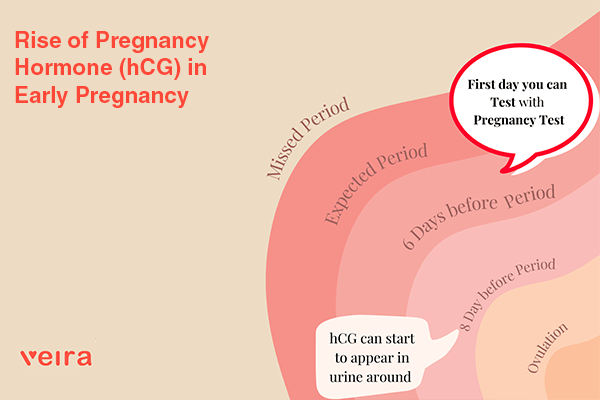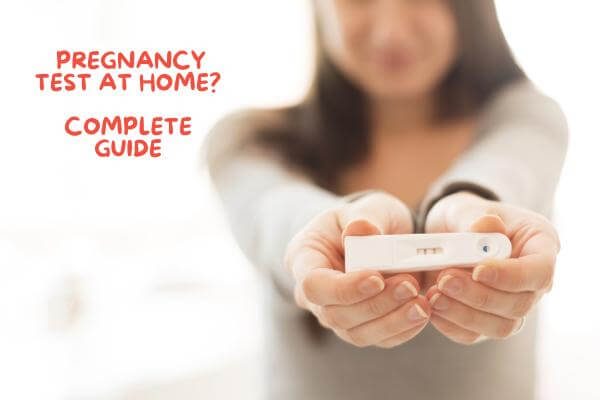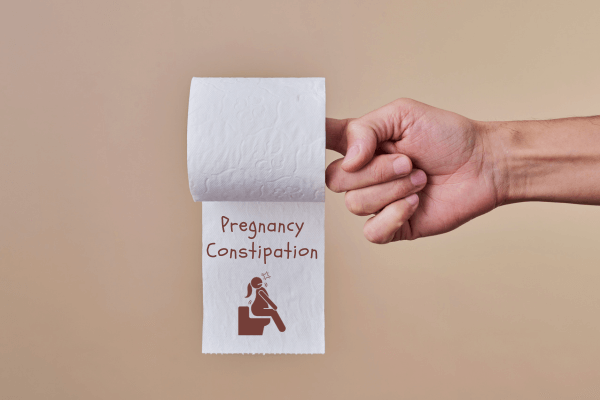Whether you have been anticipating the pregnancy, already experiencing early pregnancy symptoms or your periods are unexpectedly late, you might go through a roller coaster of emotions as you take that pregnancy test out of its packaging. These emotions can turn into nervous confusion if you see a faint line(s) on the home pregnancy test.
So what does the faint line on a pregnancy test mean? Is there something wrong with the test? Are you not pregnant? Or are you?
The answer might just be hanging by that faint line on the test. Worry not! We will explain how a home pregnancy test works and what a faint second line on the home pregnancy test means.
How does a Home Pregnancy Test Work?
Pregnancy tests work by identifying a specific hormone called the hCG (human Chorionic Gonadotropin). The hormone is produced in large quantities in a woman’s body during pregnancy. All you have to do is take the home pregnancy test out of its box, pee on the marked spot, wait for a few minutes and Voila! You have your result.
Home pregnancy tests use antibodies to bind hCG and produce a reaction. The reaction then results in the appearance of the highly anticipated lines. There are usually two lines on a pregnancy test. The first line is a control line. This line is usually darker and indicates that the pregnancy test is working correctly. The second line is what lets you know if you are pregnant or not. Two dark lines indicate a positive pregnancy test, while a single line is a negative.
Home pregnancy tests are usually considered highly accurate. However, they can sometimes give a false positive or false negative. You can take 2-3 different pregnancy tests if you want to be sure.
The Evaporation Line
Sometimes you may experience an evaporation line in the test. It is not a faint line but a colourless streak. It may appear at the place where the second line is supposed to be. It just appears as a result of the urine drying up. It has no colour and it’s not indicative of pregnancy. To avoid the confusion caused by the evaporation line, don’t let the test kit sit for too long, check the result at the reaction time mentioned in the instructions on the kit.
What does a Faint Second Line on the Pregnancy Test Mean?
A faint line on a pregnancy test is usually considered a positive result. It doesn’t matter how faint that line is. Even if it is barely there, the second line is indicative of pregnancy.
Reasons Why You may Get a Faint Line on a Pregnancy Test
As mentioned earlier, home pregnancy tests work by looking for the hCG hormone. The “human Chorionic Gonadotropin” hormone is produced during pregnancy, and its levels increase rapidly. Typically hCG level doubles every 48 to 72 hours when you are pregnant, reaching its peak around week 10. Following that, hCG levels decrease and then remain unchanged for the remainder of your pregnancy.
There are several reasons why the second line on your pregnancy test appears faint.
- You Took the Test Too Early: Very early on in the pregnancy, the hCG levels may be very low, and therefore the line appears lighter. The hCG levels may be high enough to react with the test but not enough to show a prominent second line. Most of the time, the faint line is the result of taking a very early pregnancy test.
- The Urine is Too Diluted:The hCG levels may also be low if your urine is too diluted. This means you might have drank a lot of water, due to which the concentration of the hCG hormone in your urine has decreased. This will also show a faint line on a pregnancy test.
- Chemical Pregnancy: It may sometimes happen that the pregnancy is not viable, but the body still has some residual hCG. A chemical pregnancy is a very early miscarriage that happens within the first five weeks of pregnancy. Even if the pregnancy did not continue in the body, it takes time to get rid of all the excess hCG, and therefore it may appear sparingly on the pregnancy test.
- The Pregnancy Test is Not That Sensitive: Different pregnancy tests have varying sensitivities. It may be that the pregnancy test you took was not able to detect the early hCG levels, and hence the line is faint.
- The Test Kit is Expired: There could be a possibility that you used an expired pregnancy test. Although most of the time, expired tests may show accurate results, quite often, their results may be compromised.
What to do if you get a faint second line on the home pregnancy test?
Although the second line, even if very faint, is mostly indicative of pregnancy, if you are still confused, here are a few things you try:
- As mentioned, mostly the faint lines are a result of a very early pregnancy test. You can take the test again after a couple of days just to be sure.
- Do not drink too much water or fluids a couple of hours before taking the test to ensure your urine is not too diluted. The early morning urine is usually more concentrated and considered best for taking the urine pregnancy test.
- Try taking 2-3 tests of different brands if you are not sure about their sensitivities; also, ensure your test is not expired.
What does a faint line on a pregnancy test look like?

When taking a pregnancy test, you may see a line or two in the results window. The appearance of the lines may vary depending on the type of test you use, but they all detect the hormone human chorionic gonadotropin (hCG). A faint line on a pregnancy test may indicate early pregnancy, as the hCG levels may not be high enough to produce a visible line. It’s important to read the test instructions carefully and wait until the day of your missed period to take the test. If you receive a negative result, it could be a false negative and waiting a few days to retest may provide more accurate results.
FAQs
Yes, a faint line on a pregnancy test can indicate a negative result. However, it’s best to follow the instructions on the test and wait for the appropriate amount of time before interpreting the result.
A faint pregnancy line can be very light and barely visible. It may indicate early pregnancy, low hormone levels, or a faulty test.
Yes, it is possible to get a faint line on a pregnancy test and not be pregnant. Faint lines can indicate low levels of the pregnancy hormone or an evaporation line.
hCG (human chorionic gonadotropin) levels typically double every 48-72 hours in early pregnancy, peaking at around 8-11 weeks.
Yes, a faint second line on a pregnancy test usually indicates a positive result. It is important to follow up with a healthcare provider for confirmation and further guidance.
A home pregnancy test is a good way to tell if you are pregnant without a doctor’s visit. You can buy it at any local pharmacy, drugstore or grocery store. It’s easy to use and fairly accurate.
The pregnancy test kits rely on the presence of the hormone hCG. While trace amounts of hCG could be present as early as 8 days after ovulation, it might not be enough for the kit to give you a reliable result. A week after a missed period is generally considered the most reliable but we recommend you wait at least until the morning of the first day of your expected period.
Other than waiting the adequate time to take the test, the other things you can do to get reliable results include following the instructions on the box, not drinking too much water so your urine is not too diluted (first thing early mornings are a good time), and not letting the test sit out too long before looking at the result.
A faint second line on the pregnancy test is usually considered a positive result even if it is barely there. Very rarely it could be a sign of a chemical pregnancy where the residula hCG from a very early miscarriage could be triggering the result.
That’s all we have for you about the Home Pregnancy tests and those confusing faint lines on them.
If you tested positive, congratulations! You could look up your expected date of delivery using simple calculations or an online EDD calculator.
If you want some assistance or consultation related to pregnancy, reach out to us at Veira Life. We provide one-to-one consultations with experts regarding maternity health & wellness for mothers-to-be and mothers. Our Veira Coaches are certified doulas, midwives and lactation counsellors with years of experience and deep passion for working with pregnant and new families.







